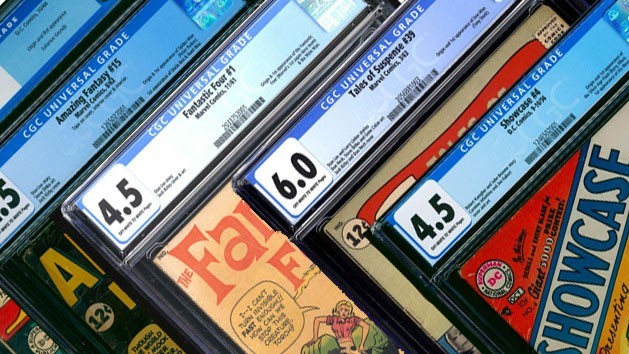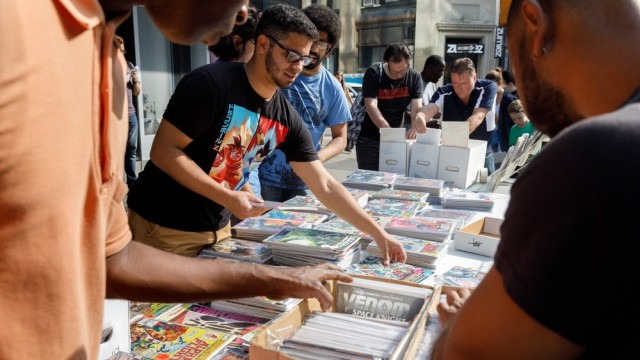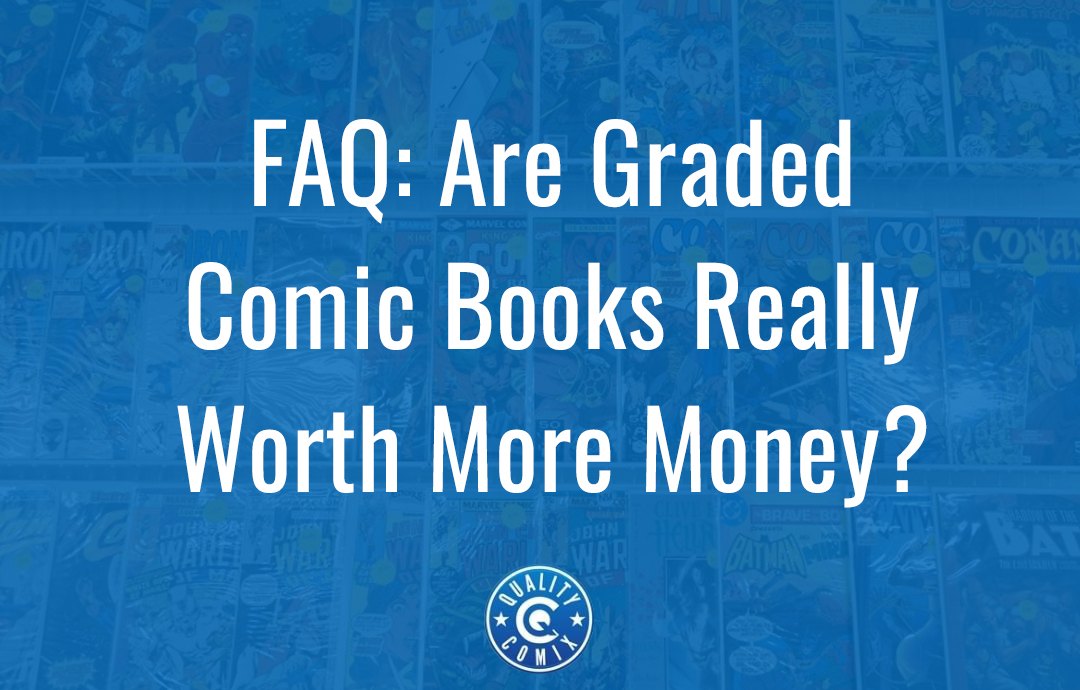
One of the questions we see a lot in comic collecting is the issues surrounding grading comics.
Namely, it's this: Are graded comics worth more money than the same comics without a grade?
While the simple answer is "yes," there's actually a lot of detail to the discussion, and it's not always as clear-cut as you might think. So, let's talk about it!
Table of Contents
- What is Grading, and What Does it Do?
- Does the Grading Company Matter?
- How Does Grading Increase the Value of a Comic?
- Can Grading a Comic Lower Its Value?
- Is Grading a Comic Always Worth More?
- Are There Other Ways to Grade a Comic?
- Is Grading the Only Way to Protect a Comic?
- Are There Downsides to Getting a Comic Graded?
- How Can You Get the Most Out of Graded Comics?
What is Grading, and What Does it Do?
First, a primer.
Grading is a service offered by a handful of companies. Comic experts examine the comic in question, evaluating details like the crispness of the paper, damage and creases to edges and around staples, the color quality of the paper and the ink, the intactness of the comic as a whole, and so on.
Through this examination, they determine how close to a pristine, original, untouched copy of the comic that your copy is. A perfect 10/10 comic would be identical to any other that freshly rolled out of the printers, with no damage, no fading, no errors, no issues, no markings, no dirt, and so on.
The idea is that a comic is more desirable the closer to pristine, mint condition it is. People who collect comics likely want those comics as display pieces, and a display piece is better when it's in great condition, right?
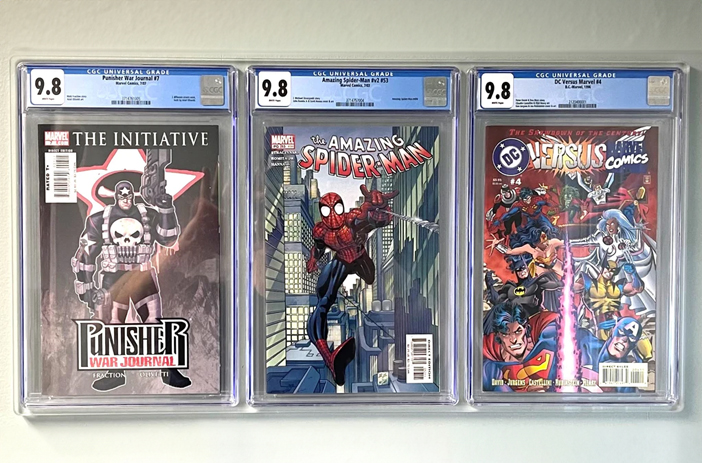
Image source: https://showyourslabs.com/cdn/shop/products/CGC-comic-book-1x3-display_1024x1024.jpg?v=1677698737
Grading also often comes with associated services. For example, many of the grading companies now provide pressing and cleaning services, which are nondestructive ways of removing marks, indentations, minor bends or creases, and other damage, without leaving any signs of the comic having been repaired the way something like replaced staples, swapped pages, or archival repairs might.
Another associated service might be verification and validation. Many people like to get comics signed by the artists, authors, or character creators (Stan Lee was extremely popular), and grading authorities can sometimes validate the authenticity of those signatures. (Note: These days, grading companies generally require the comic to be signed in the presence of an official rather than trying any sort of post-facto handwriting analysis or anything.)
In rare cases, a grading company might also recognize a particularly noteworthy collection as a pedigree collection and authenticate the comics in that collection under pedigree status. This is very rare today – there are less than 100 pedigree collections – but it can be a huge boost to the desirability of the comics.
Does the Grading Company Matter?
As we mentioned above, there are a handful of different companies providing grading services.
The biggest, oldest, and generally most trusted comics grading company is CGC, the Comic Guaranty Company. They more or less invented grading comics, have set the gold standards for a grading scale, and the majority of the comics you see graded on the market are CGC grades.
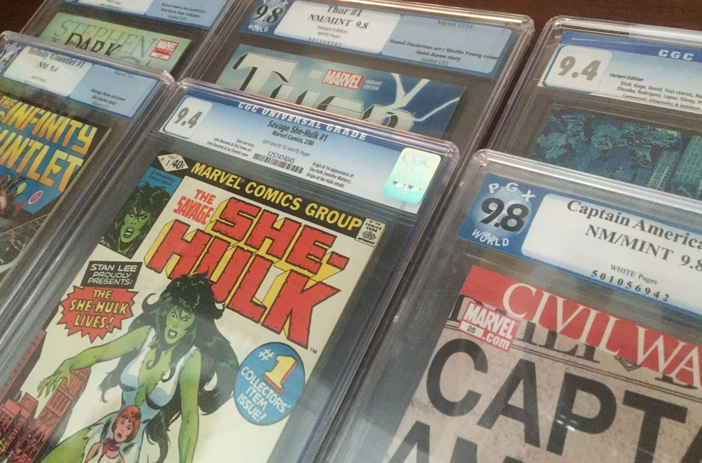
Image source: https://www.zapkapowcomics.com/comic-book-grading/
Of course, no industry can stand without competition, and CGC has competition.
- CBCS, operated by Beckett, is the biggest competitor to CGC today.
- PGX, an early competitor to CGC, developed a bad reputation early but has fought most of it off by now.
- EGS, a relatively new grading company, is trying to build a name and reputation for itself.
You can read a much deeper dive into the companies offering grading services over here in our guide.
So, does the company matter? In short, yes. 90% of comics are graded using CGC or CBCS, and among those two, CGC has the better reputation and generally higher values due to that reputation. CBCS is mostly comparable, just less popular, so many collectors prefer CGC-graded comics. The other companies, since they've had issues with reputation in the past, are less desirable and less trusted.
How Does Grading Increase the Value of a Comic?
So far, we haven't addressed the primary question, which is this: Does grading really increase the value of a comic? After all, comics are meant to be read; when you slab them up and encase them in plastic, you can't read them. When most of what makes a comic valuable is the content of the comic – not the cover – hiding it away almost doesn't make sense, does it?
The answer is yes, grading makes a comic more valuable, but it's not satisfying to just say that. Source: Trust me, bro.
For one thing, the "contents are hidden" argument isn't really valid these days. For one thing, you can always find low-grade beater copies to read. For another, virtually every comic is available for just a few dollars in digital format today, so the contents are never truly unavailable.
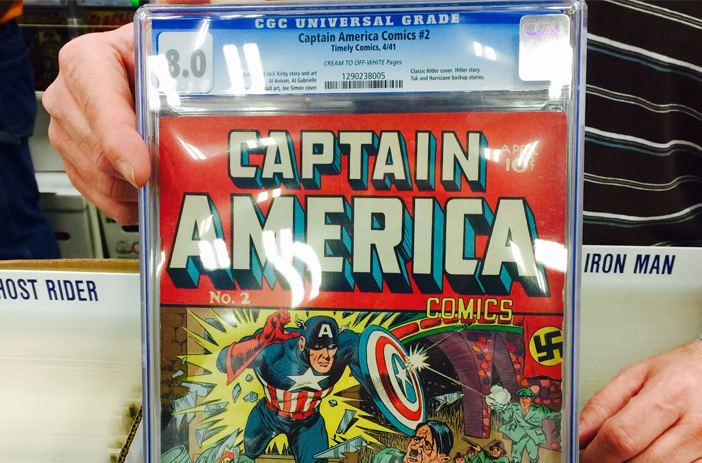
Image source: https://image.cnbcfm.com/api/v1/image/103152658-FullSizeRender-1.jpg?v=1447359918
For another, grading a comic isn't the sole value that comes from the grading process. While yes, the grade as an indicator of the condition of the comic is important, you also get:
- Encapsulation. Slabbing the comic helps preserve and protect it, whereas an unslabbed comic is vulnerable to further degradation over time. This can be especially relevant when you're dealing with buying and selling online and the associated need to ship those comics in a way that they won't get damaged.
- Authentication. Some comics, particularly indie comics, are prone to fraud via replication. Detailed grading from experts helps verify that a comic is the real deal.
- Reputation. To an extent, attaching the CGC name to a comic gives it an added degree of value simply because it was verified by a reputable company.
What it really comes down to, though, is that this is how comic collecting has shaken out over the decades. Grading increases the value of comics because people are willing to spend more on graded copies of a comic than they are on ungraded copies. CGC is probably heavily responsible for this through their marketing, too. In another world, would grading comics be seen as laughable? Maybe, but we don't live in that world.
Can Grading a Comic Lower Its Value?
Here's a tricky question: Can getting a comic graded actually decrease the value of that comic?
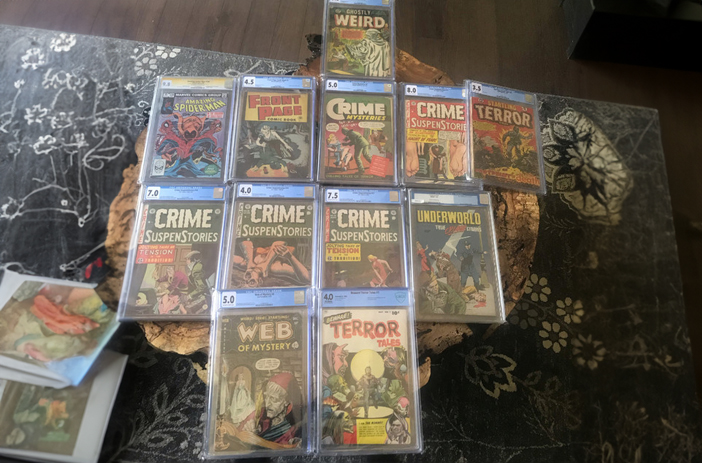
Image source: https://www.kijiji.ca/v-comics-graphic-novels/oshawa-durham-region/beautiful-cgc-graded-comic-books-for-sale/1668839322
The answer is yes… sometimes. It's generally quite rare, though. There are a few situations where it can happen.
- You have a comic of a reasonably high grade in condition. Sending it away for grading, it comes back restored; apparently, at some point, someone swapped out pages from multiple comics. You don't have an original, and people aren't interested in restored comics.
- You have a comic that was signed by an artist who doesn't usually do signatures and who has since passed away. You send it to get graded, and they send it back with a note: this signature is a forgery. Your copy is now marked and damaged, not signed at all.
- You send a comic to get graded. You're pretty sure it's a 9.6 in condition, judging by the grading scales CGC publishes. They send it back at 9.2, noting damage you didn't think was all that relevant. Technically, you've "lost" value here, though you wouldn't have likely gotten 9.6 [graded] prices from it, just perceived raw prices.
- You send a comic to get graded. It arrives, but tragedy has struck. Somewhere in the shipping process, a box got soaked, and the comic is now water-damaged. Your formerly pristine comic is now a waterlogged brick.
Now, these kinds of issues only happen to a very small percentage of the comics sent off for grading. 99% of the time, getting a comic graded is going to boost its value, at least amongst collectors who are interested in the comic.
Is Grading a Comic Always Worth More?
In addition to the ways above where grading a comic could potentially decrease the value of the book, are there exceptions to the rule? Certainly.
The biggest offender here is generally just getting a comic graded when that comic isn't worth getting graded. A $50 comic getting graded can suddenly be worth $500, and it costs some amount to get it graded. It can be a significant boost.
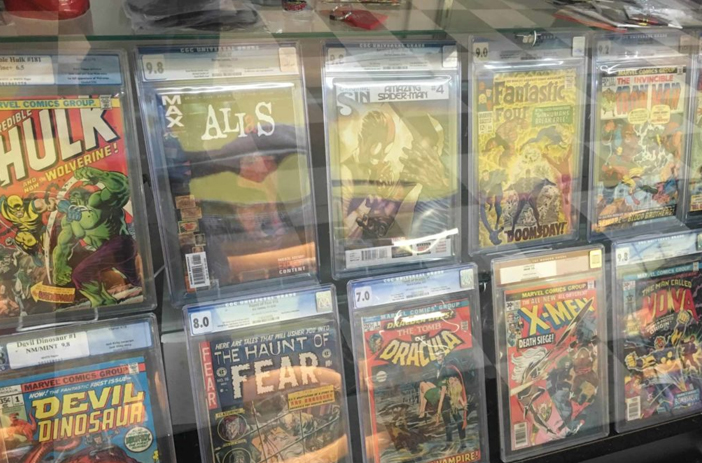
On the other hand, if you have a comic worth $1 and you spend $20 to get it graded, how much is that comic worth? Chances are, $21 at most.
As we mentioned above, one of the driving factors of comic value is desirability. A $1 bin comic isn't all that desirable, and if you get it graded, well, now you have a copy of a common comic with a grade. How many people actually care to get a graded copy of that comic? Moreover, how many people are going to pay a premium for it when they could just buy their own $1 copy, pay their own $20 to get it graded, and have the same thing you have for less expense?
So, no, comics aren't universally worth more when they're graded. It's a contextual value.
Are There Other Ways to Grade a Comic?
No. If you want a comic to be graded, you have to send it to a comic grading company. On top of that, it has to be a reputable comic grading company. Every few years, a new company tries to spring up and offer grading services, often cheaper and with inflated grades compared to CGC, in an attempt to break into the comic market. Sometimes, they succeed and end up a big player like PGX. Other times, they end up having taken a bunch of money from people for grading services and given back comics whose grades aren't trusted, and they go out of business.
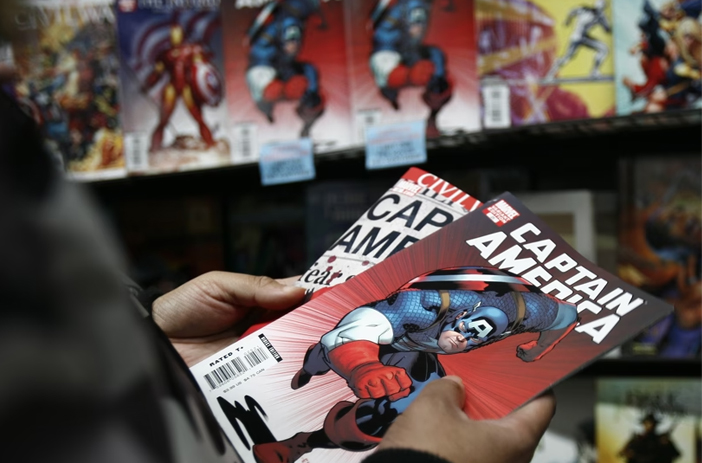
Image source: https://www.theatlantic.com/entertainment/archive/2017/05/the-real-reasons-for-marvel-comics-woes/527127/
You can't self-grade comics, and you generally can't trust anyone but the few big names in grading. Like it or not, it's a pretty niche industry.
Is Grading the Only Way to Protect a Comic?
Not at all!
Grading and encapsulation are actually two different processes. Encapsulation is part of grading because the slab can't be opened without damaging it, meaning you always know that the comic inside is the one that was graded.
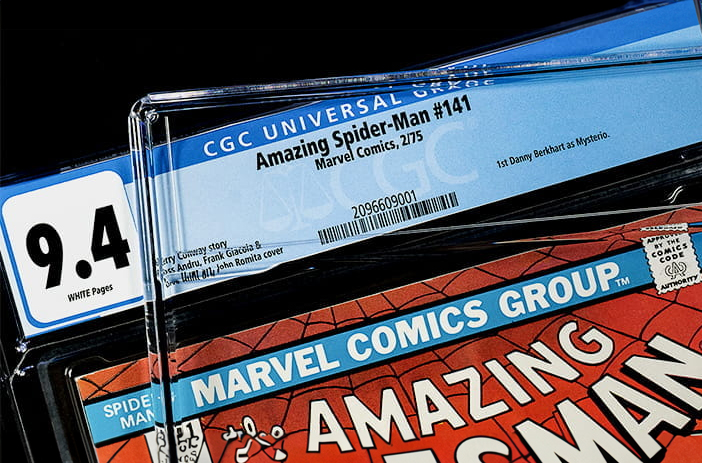
But you can buy slabs yourself and encapsulate your own comics. It doesn't come with a grade or a label, but it does get that added protection.
There are also a whole lot of other ways to protect comics. The bag-and-board method is tried and true, there are a wide range of storage boxes, all sorts of acid-free containers, display systems, and a whole lot more. It's a whole world to explore if you just want to protect books that aren't otherwise worth getting graded.
Are There Downsides to Getting a Comic Graded?
A few.
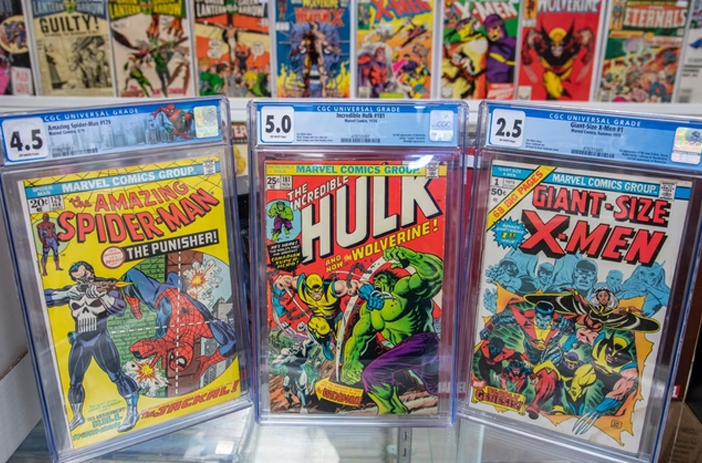
Image source: https://www.newsday.com/lifestyle/fashion-and-shopping/sell-buy-trading-cards-action-figures-comic-books-pokemon-f70fjbdu
The two biggest issues are:
- The expense. The costs of shipping and the fees of grading a comic can add up, and the older and more valuable a comic is, the more it costs to get it graded. If you aren't then selling the comic for a profit, this can be a significant downside.
- The interest. While we think of graded comics as the gold standard for collectibles in the comics industry, there are still a ton of collectors who either don't want to pay a premium or don't care for graded comics at all. Those who believe comics should be read and enjoyed, or just those without a huge budget, won't be interested in buying. When you want to sell, it might take a while due to a lack of interest.
Overall, though, the downsides aren't usually going to outweigh the upsides of getting a valuable comic graded.
How Can You Get the Most Out of Graded Comics?
If you have graded comics and you want to get the most out of them, you have two options. First, you can hang onto them and enjoy them, in which case you're going to want some good display system to see your collection and appreciate it.
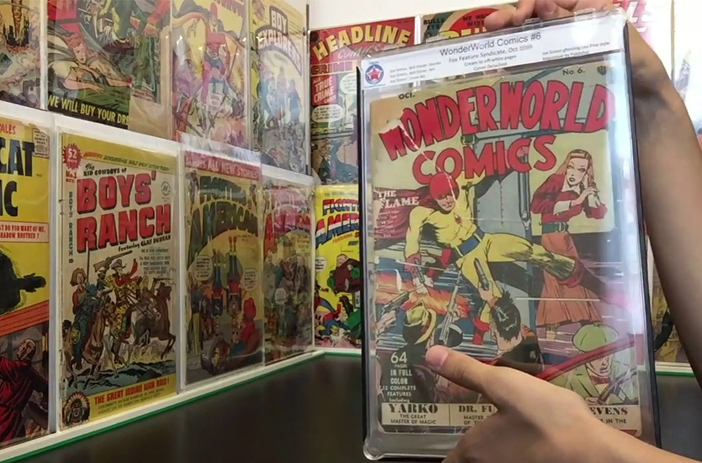
The other option is to sell them, and you've definitely come to the right place for that. We're one of the foremost dealers of high-end comics, and we can help you sell your comics for the best possible returns, no matter what you have or why you're selling. Just drop us a line, and let's chat! There's no obligation and no pressure, just advice and a friendly discussion.


